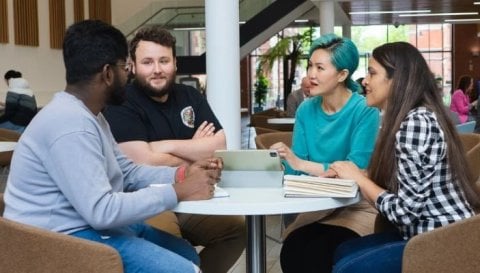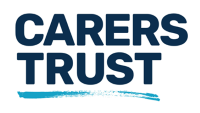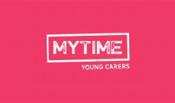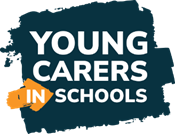
Next Steps: What is the experience of young adult carers in education?
In its latest report in the Next Steps series, UCAS, with support from the Carers Trust, uses brand new insight collected from the new set of widening participation questions on the UCAS application to examine the educational experiences of young adult carers.
UCAS uses application, acceptance and survey data to offer unparalleled understanding into the progression of young adult carers to university and college. The report identifies the potential challenges that young adult carers have in accessing higher education and offers tangible recommendations for schools, colleges, universities and others supporting this cohort as they go onto their next steps.
Key findings include:
- Young adult carers are more likely than their peers to choose courses which have a caring component: they are 59% more likely to apply to health and social care courses, and 57% more likely to apply to nursing and midwifery courses than applicants without caring responsibilities.
- Young adult carers prefer to stay closer to home for higher education: young adult carers are 39% more likely to choose to live at home while they study. 41% choose to study within 30 minutes’ drive from home – 25% more likely than those without caring responsibilities.
- Young adult carers are hesitant to share their caring responsibilities with school staff, creating an information gap for this cohort when applying to higher education: 72% of young adult carers state that they never or rarely spoke to teaching staff about their caring responsibilities, with 71% also never or rarely communicating with support staff, often due to a lack of recognition of their status as a young adult carer or because they do not realise there is support available in higher education.
View the
View the
View the press release

Compared to applicants aged under 25 without caring responsibilities:
Compared to applicants aged under 25 without caring responsibilities:
25%
47%
38%
29%
Examples of support for young adult carers

Charity case study: MYTIME Young Carers Level-Up programme
The MYTIME Young Carers Level-Up programme is a free school programme that equips schools with the knowledge and skills to identify young carers, and subsequently provide the support they need to flourish. The programme has been intentionally designed with young carers at the centre of it. Improving the knowledge of professionals and increasing awareness and understanding of who young carers are is central to the success of Level Up. The programme includes staff training, pupil assemblies, policy writing and much more.
As a team comprised of former teachers and young carers, we work with schools to build a whole school approach where young carers feel seen, heard and supported. By developing a whole school approach, we aim to break down the stigma around young carers and provide a voice for them in the community. School and staff are provided with support and guidance to ensure young carers are given a voice in their community and staff are supported when having potentially difficult conversations with young carers and families.

Charity case study: Young Carers in Schools programme run by the Carers Trust and the Children’s Society
The Young Carers in Schools programme works with schools across England to share best practice, provide relevant tools and training, and celebrate the great outcomes many schools achieve for young carers. Central to schools’ provision is establishing a whole-school approach to identifying and supporting young carers; where young carers become everyone’s business. Principal school documents should acknowledge young carers, and schools should proactively communicate positive information about disability, illness and caring to staff, pupils and families. Doing this can reduce the stigma associated with caring, supporting young carers and families to self-identify and feel confident in doing so. It is also important that all school staff have the knowledge and confidence to identify and support young carers, as well as the understanding that they shouldn’t talk about a student’s caring role in front of their peers as not all young carers want to disclose this.
Of schools that have been involved in the programme, 94% of staff had a better understanding of the support required for young carers and what to do if they identified a young carer. Similarly, 83% of young carers reported increased happiness and confidence.

Charity case study: Young Carers Development Trust
YCDT supports young carers from the age of 14-19 to help address the imbalances which prevent them from achieving their full potential in education.
Part of the support the Young Carers Development Trust provides is through an annual Young Adult Carer (YAC) Conference, held over the Easter break and hosted by a local university. The event is free to attend and YCDT can help with transport costs. It is open to young carers and young adult carers across the UK.
The format of the day is a choice of up to twelve 45-minute workshops, which focus on topics related to further education, higher education, apprenticeships, mental health and issues related to caring such as the potential barriers they face.
In 2023, of the YACs who attended, 27% said they had not previously considered attending university due to their caring roles, but now with a better understanding of the support available were considering this as an option.
Provider case study: Aberystwyth University
Aberystwyth University offers a variety of support and help to young adult carers. The university is a member of Ceredigion Carers Alliance and we are able to pass on information to help our student carers manage their studies alongside their caring role.
We have a bursary that young adult carers can apply for which is paid for the duration of their course. We also give graduates extra funding to help towards graduation costs. We have a dedicated contact for young adult carers, who they can ask for advice or receive information from. We provide a Signpost mentor to young adult carers to help them settle into university life, help with time management advice and organisation skills development. We also offer dedicated career and employability support to help them with career choices.
Young adult carers can rent university accommodation over the summer period, in addition to term time.
We have started a social group so that young adult carers can meet, and from September 2024, we will have more information sessions about what they can claim for, from outside organisations.
